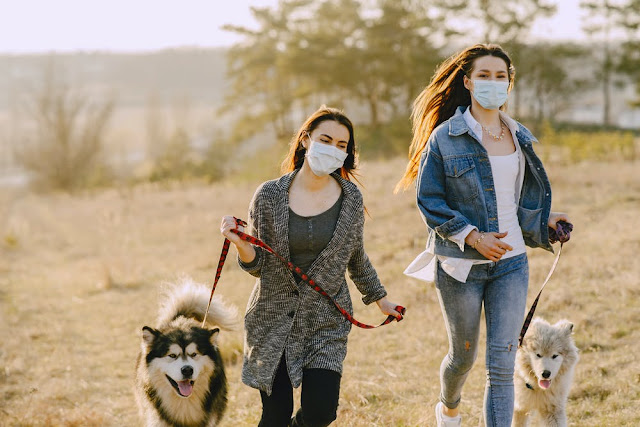Can My Pet Catch The Coronavirus (Covid-19) ?
While Coronavirus disease 2019 (Covid-19) is mostly transmitted between humans, it can also be transmitted from humans to animals !
Covid-19 is a type of Coronavirus, as the word Corona means "Crown" in Arabic. Coronaviruses are a family of viruses. Some cause diseases similar to the common cold in humans, while others cause disease in animals, such as bats. Additionally, some coronaviruses only infect animals. While its original source is not known exactly, the virus that causes Covid 19 is believed to have started in animals, spread to humans, and then spread among people.
The Effect of the Coronavirus on Dogs and Cats
According to the Centers for Disease Control and Prevention, a few pets - including cats and dogs - have contracted the virus that causes Covid-19. This happened in most cases after close contact between these animals and people infected with Covid-19.
Based on the limited information available, the risk of transmitting COVID-19 from animals to humans is low. Animals do not appear to play a significant role in spreading the virus that causes Covid-19. There is no evidence that viruses can be transmitted to other animals or to humans through the skin, fur, or hair of pets.
However, keep in mind that young children, people with weakened immune systems, and people 65 years of age or older are more susceptible to infection with some other germs that animals can carry.
To protect your pet from COVID-19, do not allow your dog or cat to interact with people or animals outside the home.
For example :
-Avoid dog parks or public places where many people gather with their dogs.
-When taking your dog for a walk, be sure to keep him leash and keep him 6 feet (2 meters) away from people and animals.
-Keep cats indoors as much as possible.
If you get COVID-19 and have a pet :
-Isolate yourself from everyone, even your pet. If possible, ask someone else in your household to take care of your pet.
-Avoid touching or cuddling your pet, do not let her lick you or put his mouth on you, and do not share your food or bedding with him.
-If you have been caring for your pet or have been surrounded by animals while you are sick, wear a fabric face cover. Wash your hands before and after handling animals or their food, waste, and supplies. Also, be sure to collect waste from your pet.
If you have COVID-19 and your pet becomes sick, do not take it to the vet yourself. Instead, call your veterinarian. He or she may give you advice over the Internet or the phone, or create another treatment plan for your pet. It is only advisable to test pets that have shown symptoms and have been exposed to a person with COVID-19.
If the result is positive when your pet is tested for COVID-19, adhere to the same precautions in the event that a family member becomes infected. Make sure your pet is isolated in a separate room away from the rest of your family, and prevent your pet from going outside. Wear gloves when interacting with your pet or handling its food, dishes, litter, or bedding. Wash your hands after touching anything of your pet. Do not put a face covering or a muzzle on your pet and do not wipe it with disinfectants, as they can be harmful. If your pet develops new symptoms or appears to be getting worse, contact your veterinarian.
Even if your pet gets sick, there is reason to be optimistic. Among the small number of dogs and cats that tested positive for the virus that causes Covid 19, some did not show any signs of disease. As for the animals that had the disease, their symptoms were mild, and they could be looked after at home. The infection did not kill any of them.
If you have questions or concerns about your pet's health and how it may be affected by COVID-19, contact your veterinarian.







